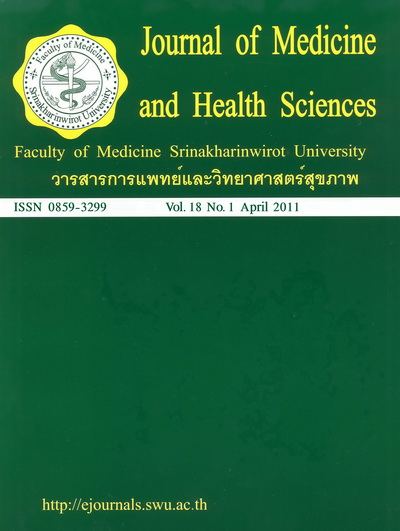Paternity testing in forensic medicine(การพิสูจน์ความเป็นบิดามารดาและบุตรทางนิติเวชศาสตร์)
Keywords:
, Personality, heir, patrimony, child protection, paternity index, probability of paternity, DNA testingAbstract
At present, a number of children of parents who are unmarried is increasing. A child born of an unmarried woman is considered as a legitimate child of the woman. The child will only become a legitimate child of his father when the father legally adopts the child. Legal adoption of a child may constitute from the willingness of the parents or from a court order. In the case of a court order, a DNA test is the best method to confirm a genetic relationship between father and child. There are several ways to determine paternity such as using Restriction Enzyme Fragment Length Polymorphism (RFLP) or Polymerase Chain Reaction (PCR) technique. Statistical calculation for the Probability of Paternity (POP) is necessary. Many government agencies providing DNA testing have a high accuracy and are able to provide the test to all regions in Thailand. Both an illegitimate child and the parents may make a request via the law or the court to prove a DNA match. However, if one of parents refuses to consent to a DNA test, the process will be abnegated. In this situation, witnesses and other circumstantial evidences might be used to help proving parental relationship. Children are protected by law, and have the right to receive appropriate care from their parents. Certification of the child is important for matters of inheritance and other legal entitlements from the father.Downloads
Published
2011-04-19
How to Cite
1.
Busayamanon S, Sithicharoon W. Paternity testing in forensic medicine(การพิสูจน์ความเป็นบิดามารดาและบุตรทางนิติเวชศาสตร์). J Med Health Sci [internet]. 2011 Apr. 19 [cited 2026 Feb. 26];18(1):30-8. available from: https://he01.tci-thaijo.org/index.php/jmhs/article/view/59811
Issue
Section
Review article (บทความวิชาการ)



